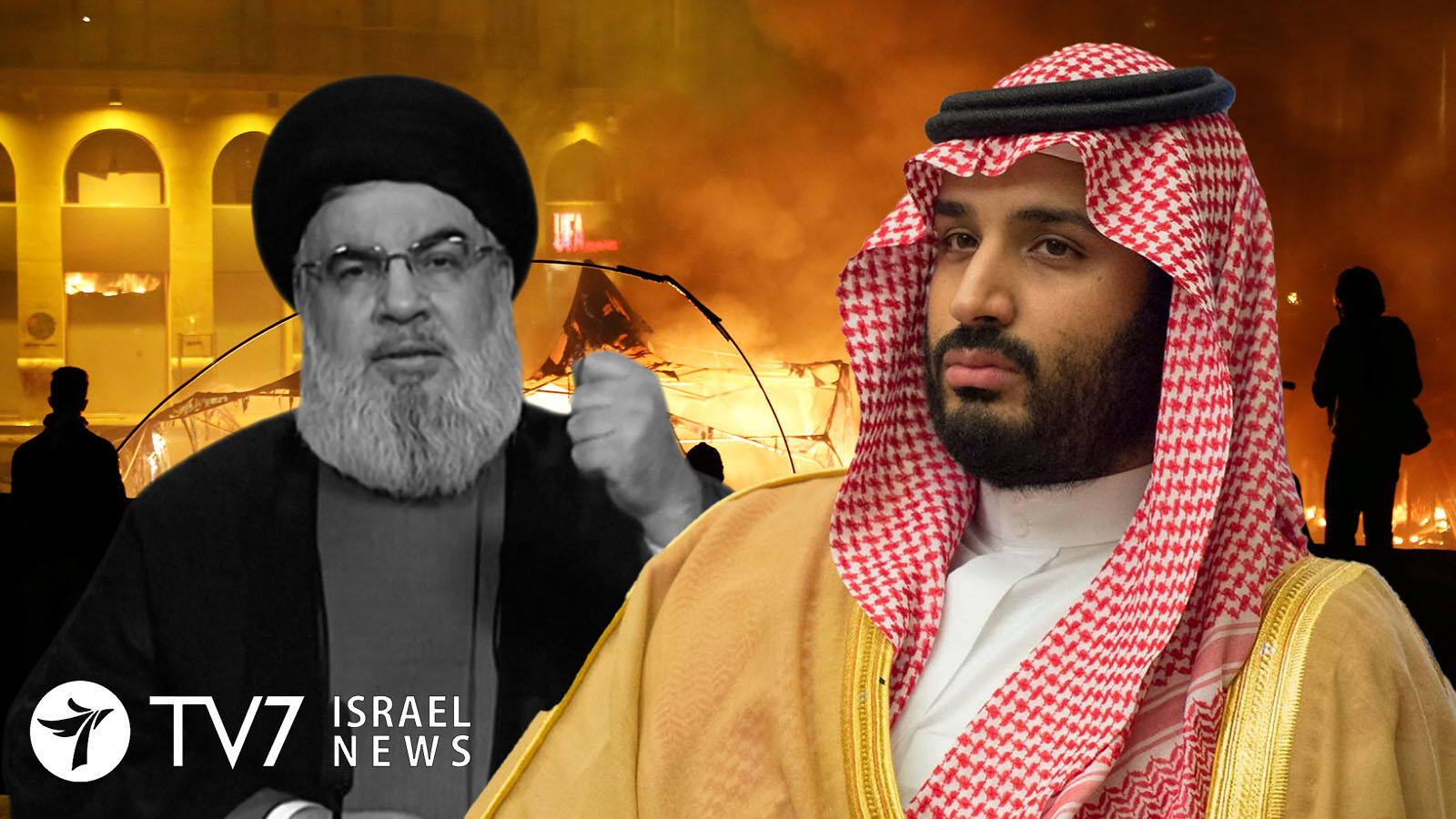Dominance of the Iran-backed Hezbollah armed group is rooted in Lebanon’s political structure that fosters endemic instability, said Saudi Arabia’s foreign minister.
By Erin Viner
“I think it’s important that the government in Lebanon or the Lebanese establishment forges a path forward that frees Lebanon from the current political construct, which reinforces the dominance of Hezbollah,” Prince Faisal bin Farhan Al Saud told Reuters in a phone interview.
The political setup “is weakening state institutions within Lebanon, in a way that makes Lebanon continue to process in a direction against the interests of the people of Lebanon,” he added.
Riyadh’s top diplomat, whose remarks come amid a regional diplomatic spat over recently broadcast statements by Lebanon’s Information Minister George Kordahi critical of Saudi-led military intervention in Yemen, stressed that he believes “the issue is far broader than the current situation.”
Kordahi told an online program affiliated with Qatar’s Al Jazeera network on 5 August that the Iran-aligned Houthis are exercising self-defense in an aggression against Yemen that is a futile war. The statements ignited a furor since being widely circulated last week, prompting demands for his resignation.
The Hezbollah-backed politician, who was appointed minister in the government that took office in September, has refused to apologize or step down. Insisting his remarks were personal views expressed prior to joining the cabinet, Kordahi said on Wednesday that he is committed to government policy and “against Arab-Arab wars … accusing me of hostility to Saudi Arabia is rejected.”
Hezbollah was quick to issue a statement praising Kordahi’s comments on Thursday.
Saudi Arabia has shunned Lebanon for years because of the strong influence wielded in state affairs by the Shi’ite Hezbollah. The kingdom and its regional rival Iran, the leading Sunni Muslim and Shi’ite powers in the Middle East respectively, have long been locked in opposing disputes for years. While Riyadh and Tehran held 4 rounds of “cordial” and “exploratory” talks this year aimed at defusing tensions, Prince Faisal said that “so far, we have not made sufficient progress to be optimistic.”
Even though Beirut officially tries to avoid involvement in regional conflicts – Riyadh has long accused Hezbollah of sending militias to fight alongside the Houthis, who are also linked to Iran. Hezbollah has also openly deployed armed members to neighboring Syria to fight alongside regime forces.
Saudi Arabia gave Lebanon’s ambassador 48 hours to leave the country on Friday and recalled its own envoy from Beirut for consultations.
After having barred all Lebanese fruit and vegetables in April on accusations the transports were being used to smuggle drugs, the Saudis on Friday issued a blanket ban on Friday against any and all imports from the financially-stricken nation.
In other regional responses to Kordahi’s remarks, Bahrain and Kuwait also expelled Beirut’s envoys from their nations, while a condemnatory statement issued by the United Arab Emirates Foreign Ministry said they “reflect Lebanon’s growing distance from its Arab brotherly countries.” The Secretary General of the Gulf Cooperation Council stated that Kordahi’s comments reflected little understanding and a superficial reading of events.
Lebanon’s cabinet, formed only in September after a 13-month stalemate, is already struggling to overcome political paralysis over a major dispute with Hezbollah over investigation into last year’s devastating explosion at the Beirut Port; and the new diplomatic rupture is likely to spiral into further crisis as the government seeks Arab support to resolve the country’s economic collapse the World Bank has called one of the worst in modern history.
In an attempt to mitigate fall-out, Lebanese Prime Minister Najib Mikati stressed his government’s commitment to maintain good relations with the Saudis. “We also appeal brotherly Arab leaders to work and help to overcome this crisis in order to preserve Arab cohesion,” said a statement issued from the premier’s office, although he stopped short of announcing concrete action to remedy the dispute. Mikati also appealed to Kordahi to put the national interest first and “take the right decision to fix Arab relations with Lebanon” in a Friday evening phone call.
The state-run Saudi Press Agency (SPA) reported that Mikati’s statement also charged that, “The control of the terrorist Hezbollah on the decision-making of the Lebanese state made Lebanon an arena for implementing projects for countries that don’t wish Lebanon and its people well.”
Lebanese President Michel Aoun wrote in a Tweet posted on Saturday that his nation wants to heal the rift with Saudi Arabia and advance bilateral cooperation with the kingdom.
Former Lebanese prime ministers Fouad Seniora, Sa’ad al-Hariri and Tammam Sallam, who are among the country’s top pro-Saudi politicians, demanded Kordahi’s resignation in a joint statement on Saturday, saying he had “harmed Lebanon’s supreme national interest” and inflicted a strong blow to relations with Gulf Arab nations.
The minister’s political patron, Suleiman Frangieh of the Hezbollah-allied Marada Movement, claimed he had refused an offer by Kordahi to step down, and that he would refuse to name a successor should he do so.
It is widely feared that any scenario involving Kordahi’s removal could bring down Mikati’s coalition if Hezbollah and its Shi’ite Amal Movement ally were to follow suit.
“The country cannot be left without a government,” due to other pressing matters, and would continue to work to resolve the rift, said Education Minister Abbas Halabi after a nearly 3-hour ministerial meeting on the crisis Saturday.
